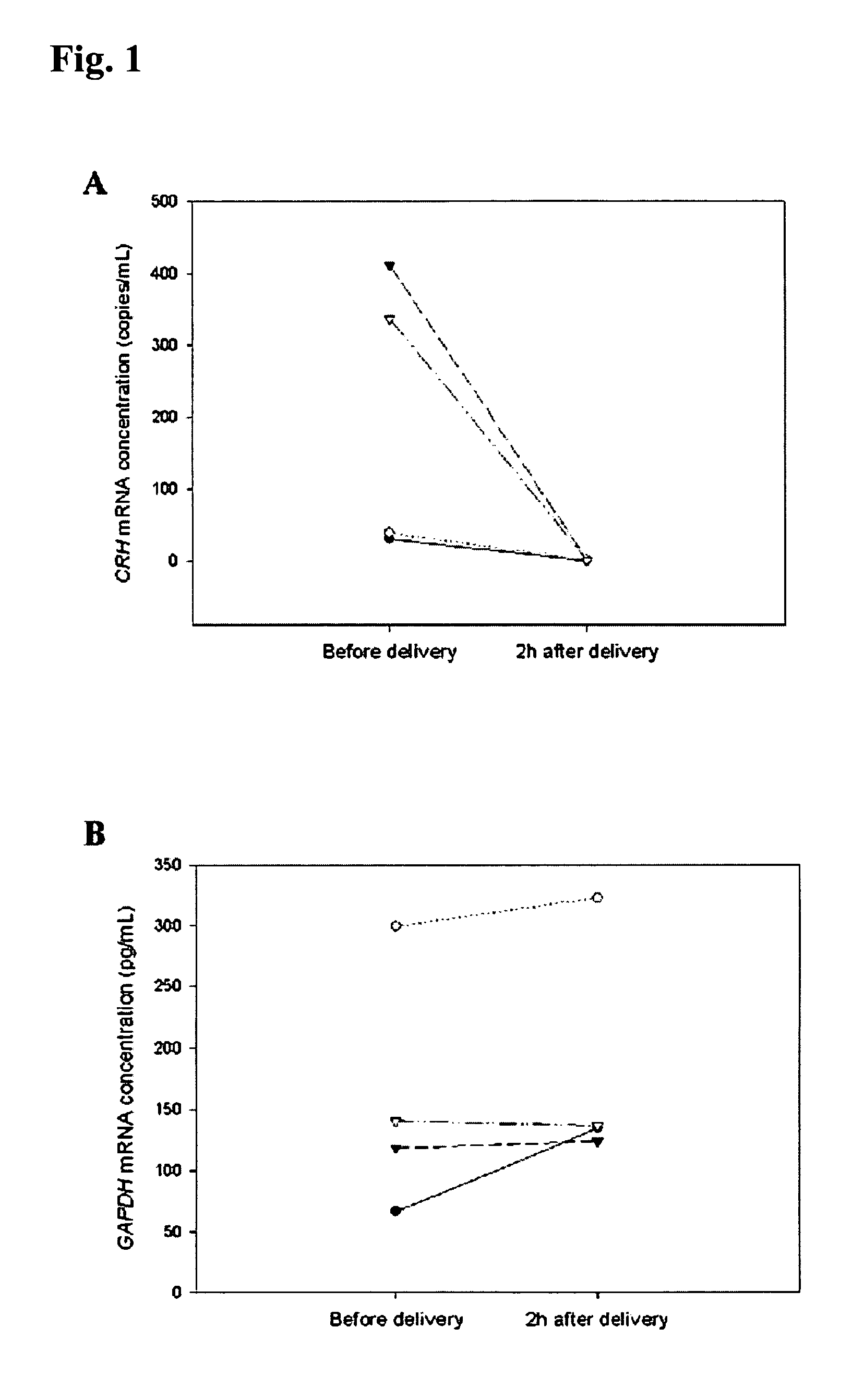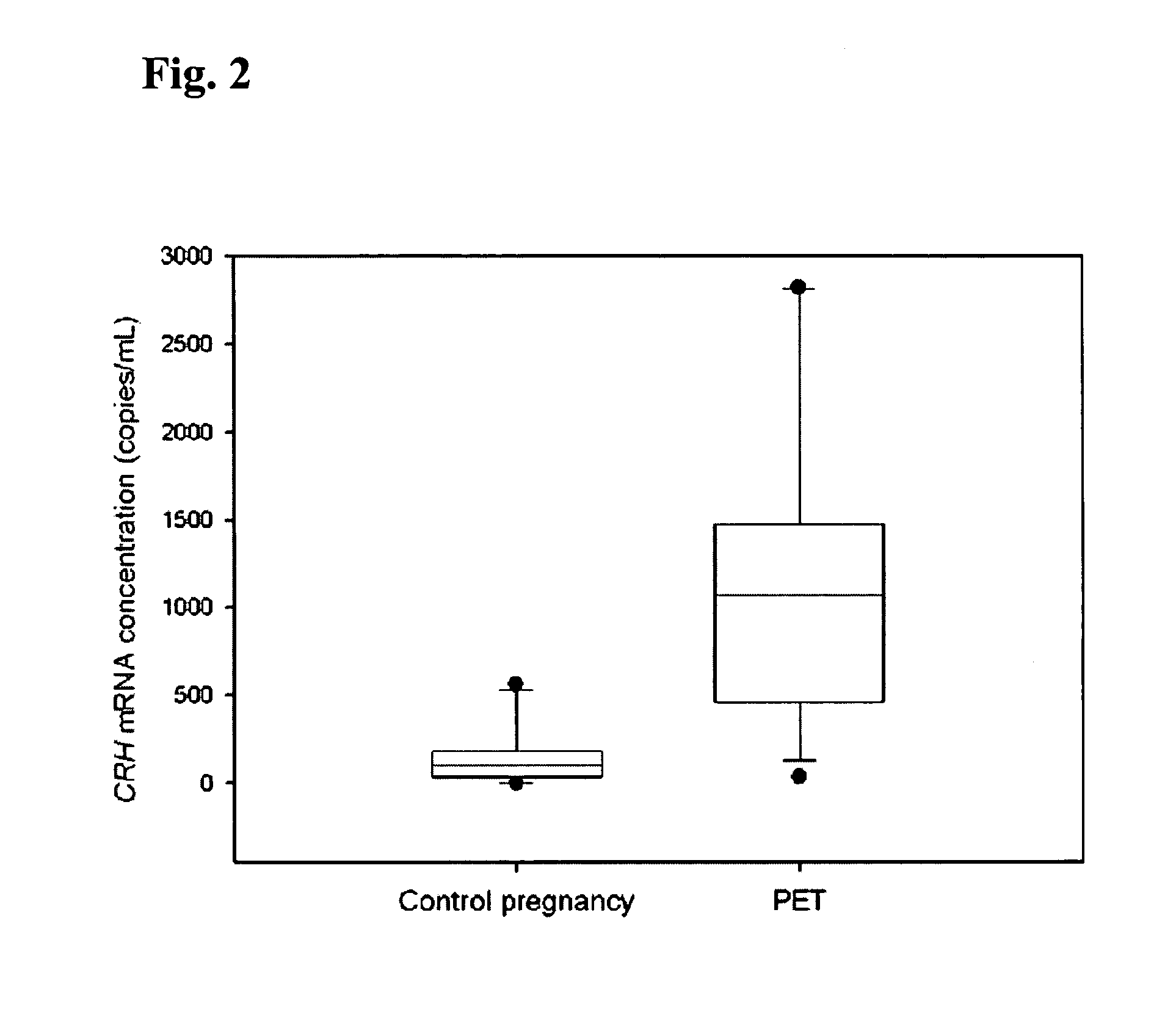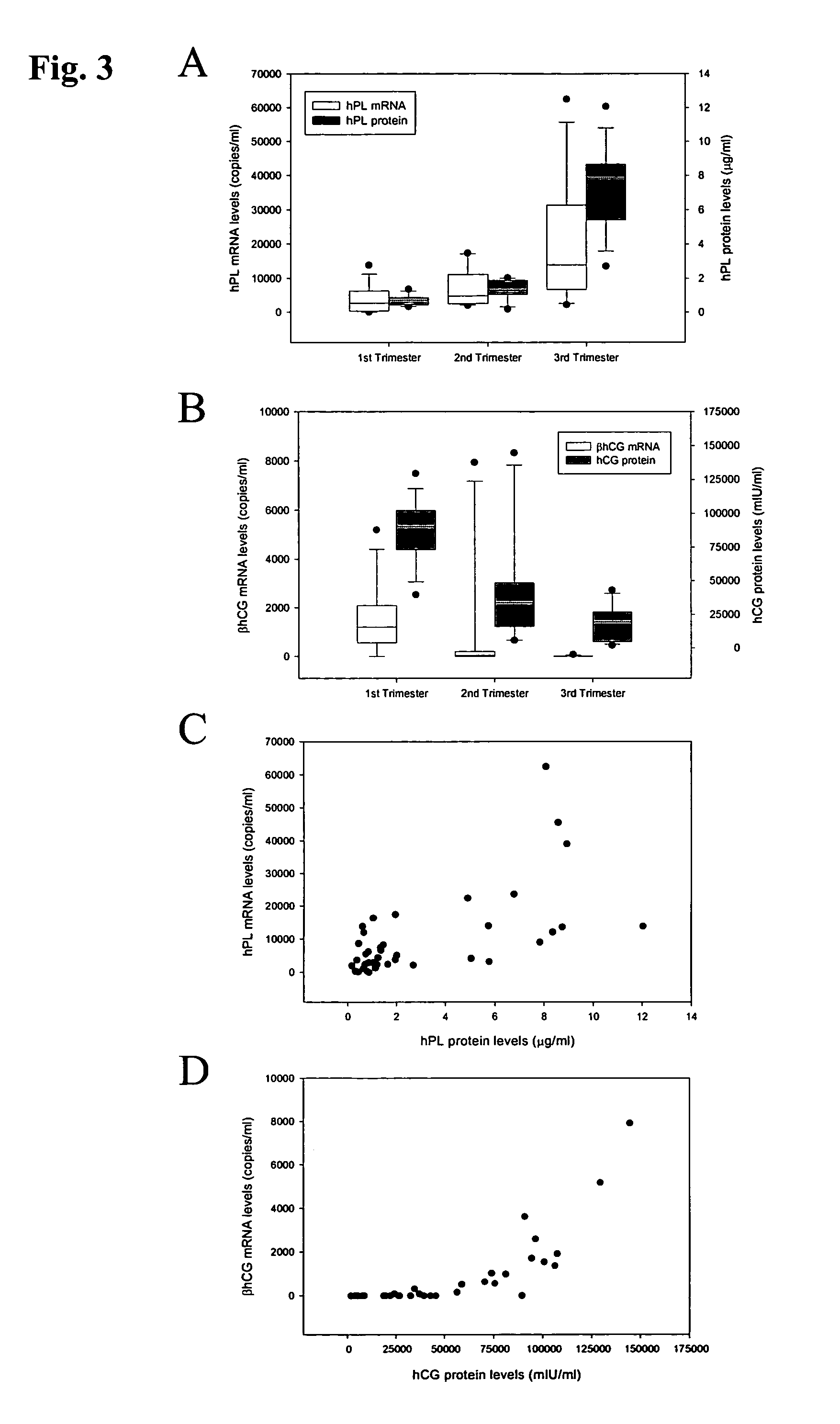Method for diagnosing preeclampsia by detecting hCRH mRNA
a preeclampsia and hcrh technology, applied in the field of preeclampsia diagnosis by detecting hcrh mrna, can solve the problems of limited application of this technology, increased complexity of fetal dna-based analysis, and invasive conventional methods, so as to increase the risk of developing, increase the amount of mrna, and increase the mrna level
- Summary
- Abstract
- Description
- Claims
- Application Information
AI Technical Summary
Benefits of technology
Problems solved by technology
Method used
Image
Examples
example 1
Elevated hCRH mRNA Level in Preeclamptic Women
A. Methods
[0064]Subjects
[0065]Peripheral blood samples were collected with informed consent and Research Ethics Committee approval from pregnant women, who attended the Department of Obstetrics and Gynecology at the Prince of Wales Hospital, Hong Kong.
[0066]In the first part of this study, blood samples were obtained from 10 healthy pregnant women during the third trimester of gestation. In the second part of the project, 4 pregnant women with uncomplicated pregnancy were recruited just prior to elective cesarean section. Peripheral blood samples were taken from these subjects just prior to delivery and at 2 hours post-delivery. In the third part of the study, two patient groups were studied: (a) 12 preeclamptic women and (b) 10 control pregnancies. The median gestational ages of the preeclamptic and control groups were 37 weeks and 38 weeks, respectively. Preeclampsia was defined on the basis of a sustained increase in diastolic blood p...
example 2
Detection of hPL and hCG-β mRNA in the Plasma of Pregnant Women
A. Methods
[0086]Subjects
[0087]15-ml blood samples were collected with informed consent and Research Ethics Committee approval from healthy women with singleton uncomplicated pregnancies, who attended the Department of Obstetrics and Gynecology at the Prince of Wales Hospital, Hong Kong.
[0088]Processing of Blood Samples
[0089]The blood samples were collected in EDTA-containing and plain tubes, and centrifuged at 1600×g for 10 min at 4° C. Plasma and serum were then carefully transferred into plain polypropylene tubes. The serum samples were stored at −20° C. for immunoassays for the hPL and hCG-β proteins. The plasma samples were re-centriftiged at 16000×g for 10 min at 4° C., and the supernatants were collected into fresh polypropylene tubes. All placental tissue samples were immediately stored in an RNA Later stabilizing solution (Ambion, Austin, Tex.) and kept at −80° C. until RNA extraction. For the filtration study, p...
example 3
Elevation in Maternal Plasma GAPDH mRNA in Preeclamptic Women
[0106]Pregnant women attending the Department of Obstetrics and Gynecology at the Prince of Wales Hospital were recruited with informed consent. Preeclampsia was diagnosed using the criteria as indicated in Example 1.
A. Methods
[0107]Maternal blood samples were taken into heparinized tubes and processed as indicated in Example 1. Plasma RNA was extracted and GAPDH mRNA level was quantified as indicated in Example 1.
B. Results
[0108]Elevation in maternal plasma GAPDH mRNA concentrations was observed in the preeclamptic group, when compared with the control group (FIG. 5). The median maternal plasma GAPDH mRNA concentrations in control and preeclamptic subjects were 70 pg / ml and 281 pg / ml, respectively. The difference is statistically significant (Mann-Whitney test, p<0.005).
C. Conclusion
[0109]Maternal plasma GAPDH mRNA is a new noninvasive marker for preeclampsia.
PUM
| Property | Measurement | Unit |
|---|---|---|
| temperature | aaaaa | aaaaa |
| diastolic blood pressure | aaaaa | aaaaa |
| diastolic blood pressure | aaaaa | aaaaa |
Abstract
Description
Claims
Application Information
 Login to View More
Login to View More - R&D
- Intellectual Property
- Life Sciences
- Materials
- Tech Scout
- Unparalleled Data Quality
- Higher Quality Content
- 60% Fewer Hallucinations
Browse by: Latest US Patents, China's latest patents, Technical Efficacy Thesaurus, Application Domain, Technology Topic, Popular Technical Reports.
© 2025 PatSnap. All rights reserved.Legal|Privacy policy|Modern Slavery Act Transparency Statement|Sitemap|About US| Contact US: help@patsnap.com



